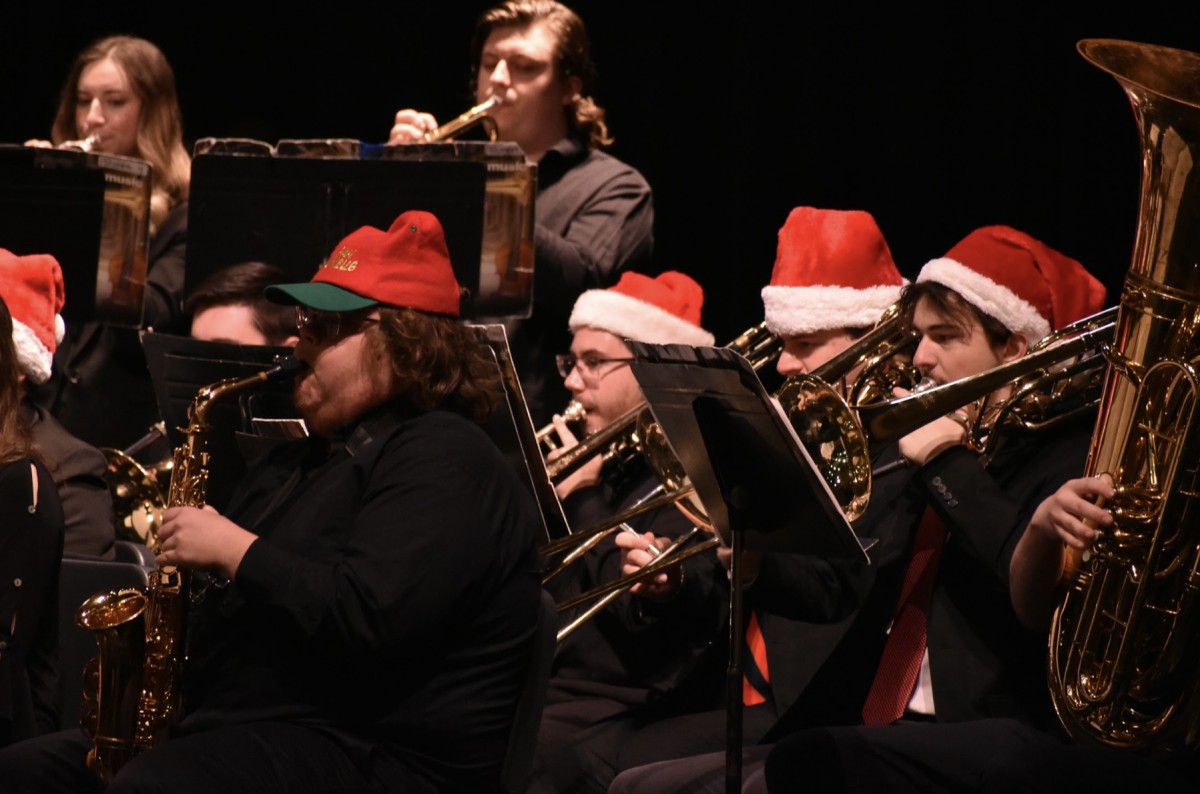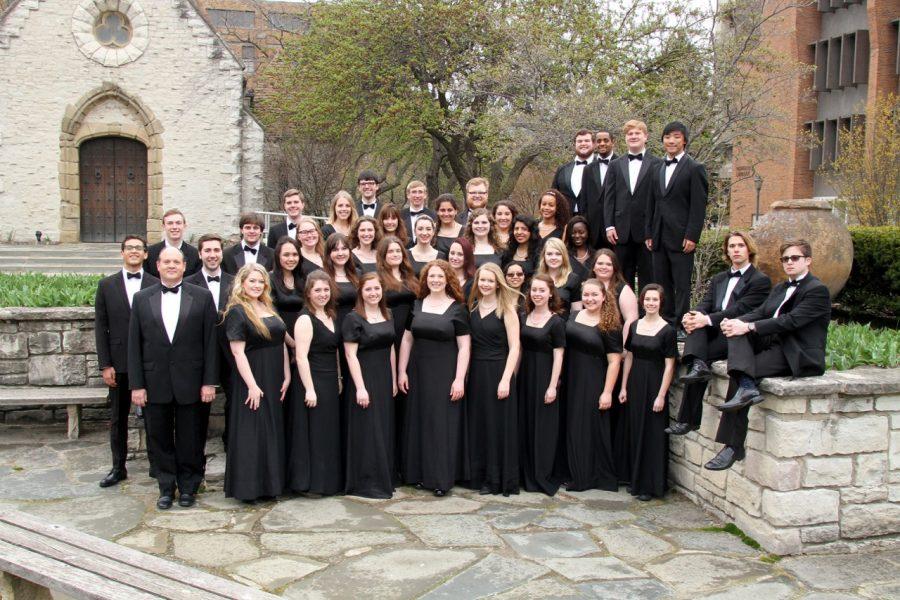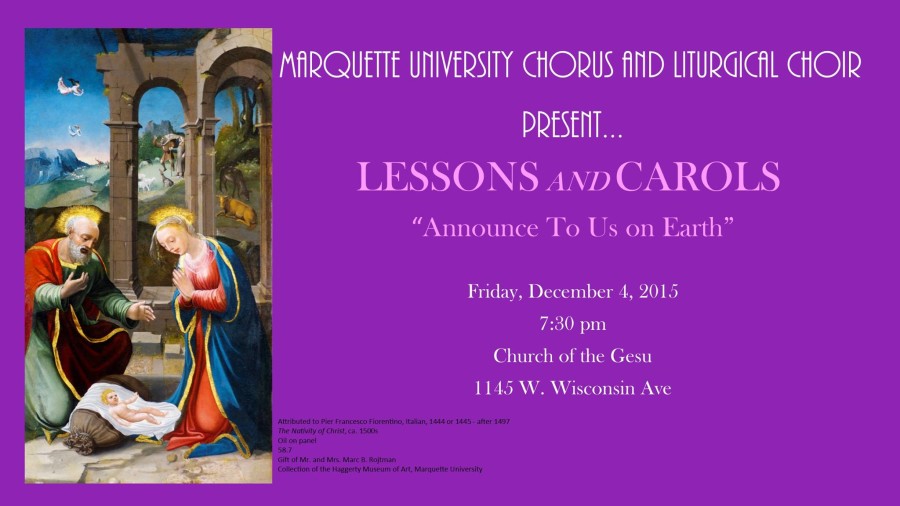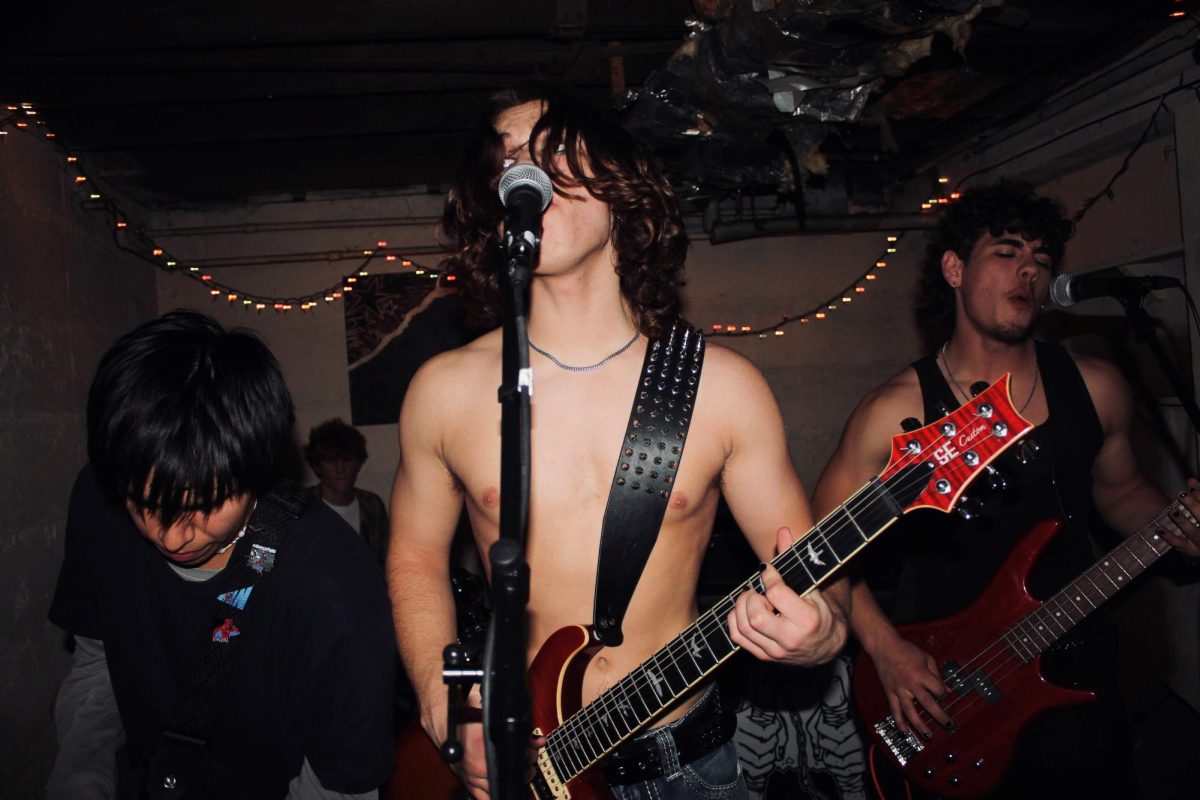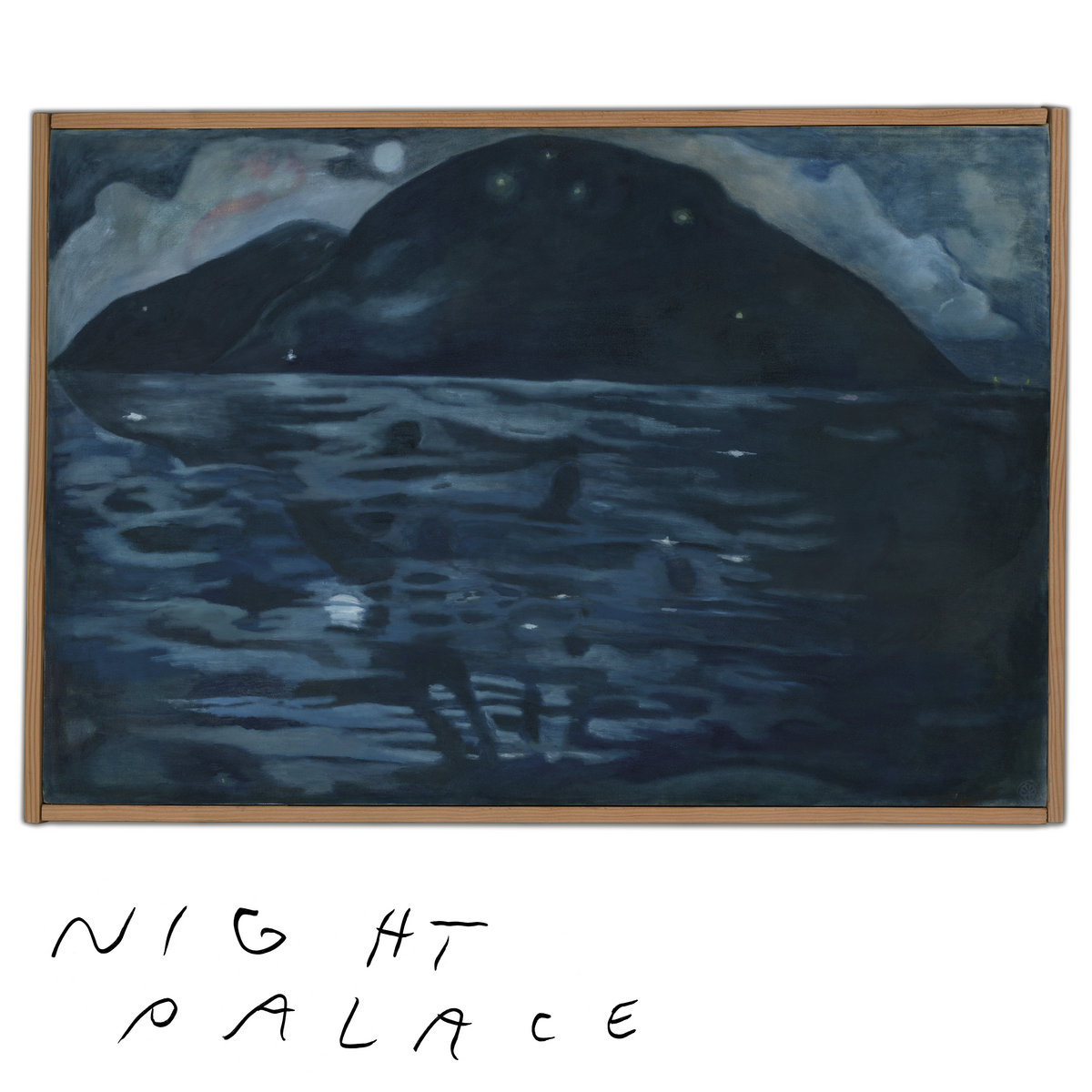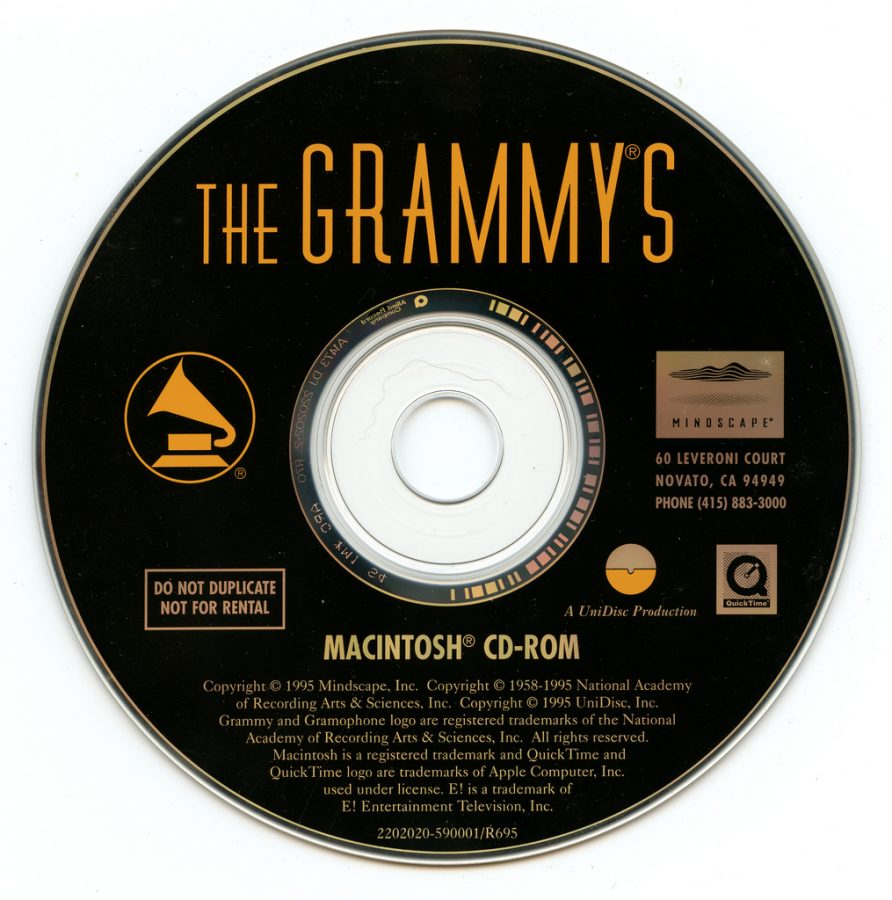
There’s a running joke within the Marquette University Chorus that Father Wild isn’t even aware that a choral group exists on campus. With their upcoming performance in famed composer Eric Whitacre’s musical theater piece “Paradise Lost: Shadows and Wings,” however, there’s no way he, or anyone else at Marquette, could not take note.
On March 6, 39 members of Marquette’s chorus, as well as choral director Mark Konewko, will journey down to Chicago. Over three days, the MU Chorus will rehearse and train with Eric Whitacre, one of the world’s most renowned modern composers, and more than 200 other singers gathered from across the nation in order to perfect the musical production.
All of that practice will then lead up to the public performance on March 8 at the Auditorium Theatre in Chicago. The show begins at 2 p.m., and tickets are on sale for $40.
The Marquette University Chorus was invited to audition for the prestigious show by Distinguished Concerts International in New York City. After sending in a sample song, the group was accepted into the chorus section of the performance.
Though the stage is grander than usual, the university’s choral group is no stranger to Whitacre’s unique music compositions. Last semester, the chorus performed his “A Boy and a Girl” at their winter concert, and for their upcoming concert on April 30 at Church of the Gesu, they intend to perform another Whitacre number, “Cloudburst.”
Some of the composer’s influence in the MU Chorus can be attributed to director Mark Konewko, who is writing his dissertation on the composer.
“I find his music to be very innovative and fresh for this time,” Konewko said. “His mix between his choice of text and the music is very cohesive, and the two work off of each other. His usage of harmonies and chord structures are also unique.”
Adding to the excitement is the fact that Whitacre himself will be guest conducting the piece and guiding the chorus in rehearsals.
“I’m looking forward to it. He’s a real important figure in the choral scene in the United States and in the world now, so it’ll be really a thrill to meet with him,” Konewko said. “Also, to watch him pull this large chorus together will be really informative.”
While the MU Chorus has a great amount of respect for Whitacre and his work, tour coordinator Allyson Gorecki, a sophomore in the College of Arts & Sciences, said the respect goes both ways.
“We don’t have a music major at Marquette,” Gorecki said. “So us being established and professional, despite that fact, made the MU Chorus something to be had in their minds.”
In a press release from DCINY, Dr. Jonathan Griffith, the organization’s artistic director and principal conductor, said Marquette’s chorus was invited due to their “quality and high level of musicianship.”
That quality and high level of musicianship will both be needed in order to tackle “Paradise Lost: Shadows and Wings.” The piece, which premiered in 2007, was inspired by Japanese animation, but it also features battle scenes, some Greek theater influences, and angels.
“It’s different and hard to explain,” said MU Chorus president Dan Statter, a senior in the College of Business Administration. “It’s hard to compare to almost any other musical.”
Adding to the piece’s difficulty is the fact that the chorus itself drives much of the action. In some versions of the production, the arrangement features an entire orchestra, but in others it is mainly the chorus with minimal instruments accompanying them.

There are professional soloists as well, but the chorus, according to Gorecki, “brings the story to life and supports the story.”
The fact that the full chorus for the production will be made up of different choruses from across the nation adds another level of difficulty. Statter said the chorus combated this difficulty by spending the core portions of their weekly practices on Whitacre’s compositions.
However, there is much more practice to come. Almost all of the MU Chorus’s time in Chicago will be spent in rehearsals with Eric Whitacre and the remainder of the “Paradise Lost” chorus.
“It’s pretty intensive,” Konewko said. “There will be breaks for lunch and dinner, of course, but it’s all day rehearsing and then dress rehearsals.”
The work and preparation may sound exhausting, but Konewko and the 39 chorus members who have been working on the piece are still excited about the music.
“It’s been just a lot of fun to sing … like a Greek chorus, they’re commenting on the action, for the actors and for how society would react,” Konewko said.
In addition, the use of electronic music techniques and instruments in the production presents a chance to learn a unique style of music from an award-winning composer.
“It’s a little intimidating,” Statter said. “But it’s also a great opportunity.”
The performance is not just an opportunity for learning — it also offers an opportunity to expand Marquette’s musical reputation. Gorecki stated that the fact that the MU Chorus is getting invited to such high profile events demonstrates the increasing establishment of music at Marquette, even without a music major.
“Though there’s only 40 of us going, we all realize the benefits because this means we could get more funding for new music and performances off-campus,” Gorecki said. “It’s making people realize that we are a force to be reckoned with on campus, and we won’t just stand by the wayside.”
Konewko sees Marquette’s involvement in “Paradise Lost” as “a feather in the cap” not only for Marquette, but for the entire civic community of Milwaukee. He also hopes that the MU Chorus’s rise will lead to a potential music major for the school and an overall emphasis on the university’s burgeoning art scene.
“We’re only 39 students, but that’s a pretty big chunk of the (“Paradise Lost”) choir,” Konewko said.
While paradise may be lost in the plot of Whitacre’s production, clearly, musical nirvana is just getting uncovered at Marquette.

